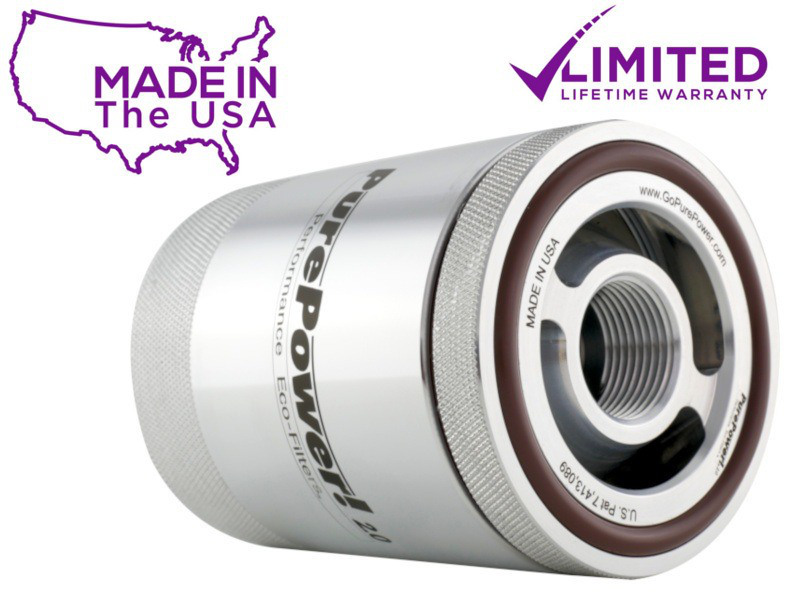Hey guys, including the face palm guy, just trying to learn. I appreciate those who responded with some info.
So, it's a V6 mustang, the 3.8L in a 2002 and is basically stock. While the motor itself is not high performance, my concern is that it will be close to redline and under load and I'm just trying to reduce the chance of oiling issues. I had a previous motor in a Subaru spin a bearing most likely due to oiling issues, doing the same type of event. So I guess I'm a little 'gun shy' and just trying to reduce possible failure points. Sorry if it upset anyone, was not my intent.
What kind of racing are you doing? I'd use a K&N HP-2009 for the filter. Any synthetic media filter will do well though, the stock pump isn't moving enough oil to really matter. The oil choice is what I would focus on.
Amsoil OE 5W-20 (and any other API rated oil) is going to be lackluster for any racing use as it leaves a lot to be desired in terms of friction reduction, shear stability, and thermal stability. API oils are restricted on anti-wear and friction modifier additive content due to emissions requirements. They're also limited on base oil interchange due to the way in which API certifications are conducted. Amsoil had to dumb down their OE line, hurt the oil's performance, in order to gain an API rating for it.
The Noack for OE 5W-20 is 8.6% which isn't terrible but not great either, especially for racing use that will see a lot of heat. In that 450-500°F environment around the 2nd and top ring, you want to limit oil evaporation as much as possible. This is even more important to an older engine where the hone is likely more worn down and thus can't hold the oil on the cylinder walls as well. For the same reason of the hone likely being worn a bit, the rings likely spend more time in boundary and mixed lubrication regimes with less oil retention on the walls, and thus an oil with more friction reducing additive will be beneficial as they help in those regimes. It's also likely that there's some carbon deposits and coking around those rings as well which could benefit from an oil that has a good bit of ester with high solubility. Certain esters can clean up those deposits which improves/restores ring seal, reducing blow-by and increasing power. Esters also improve the volatility and thermal and shear stability of the oil which all benefits racing use.
Here's a comparison of the elemental analysis of different oils that could meet your needs alongside Amsoil OE. (based on best available, newest analysis)
If it was mine, I would drain 1 quart of the Amsoil OE and add in 1 quart of High Performance Lubricants SAE 30 Engine Cleaner. It's ester based with a full DI, AW, and FM additive package that will blend right in with the OE oil, add solubility to clean well, and improve volatility and thermal stability. Run that combination the rest of this season.
After that, I think you'd be a perfect candidate for the High Performance Lubricants Bad Ass Racing (HPL BAS) 5W-20. You get a load of friction modifier with a standard DI pack that can withstand an entire season on one oil change. Paired with the K&N HP-2009 filter, you'd be good to go.


